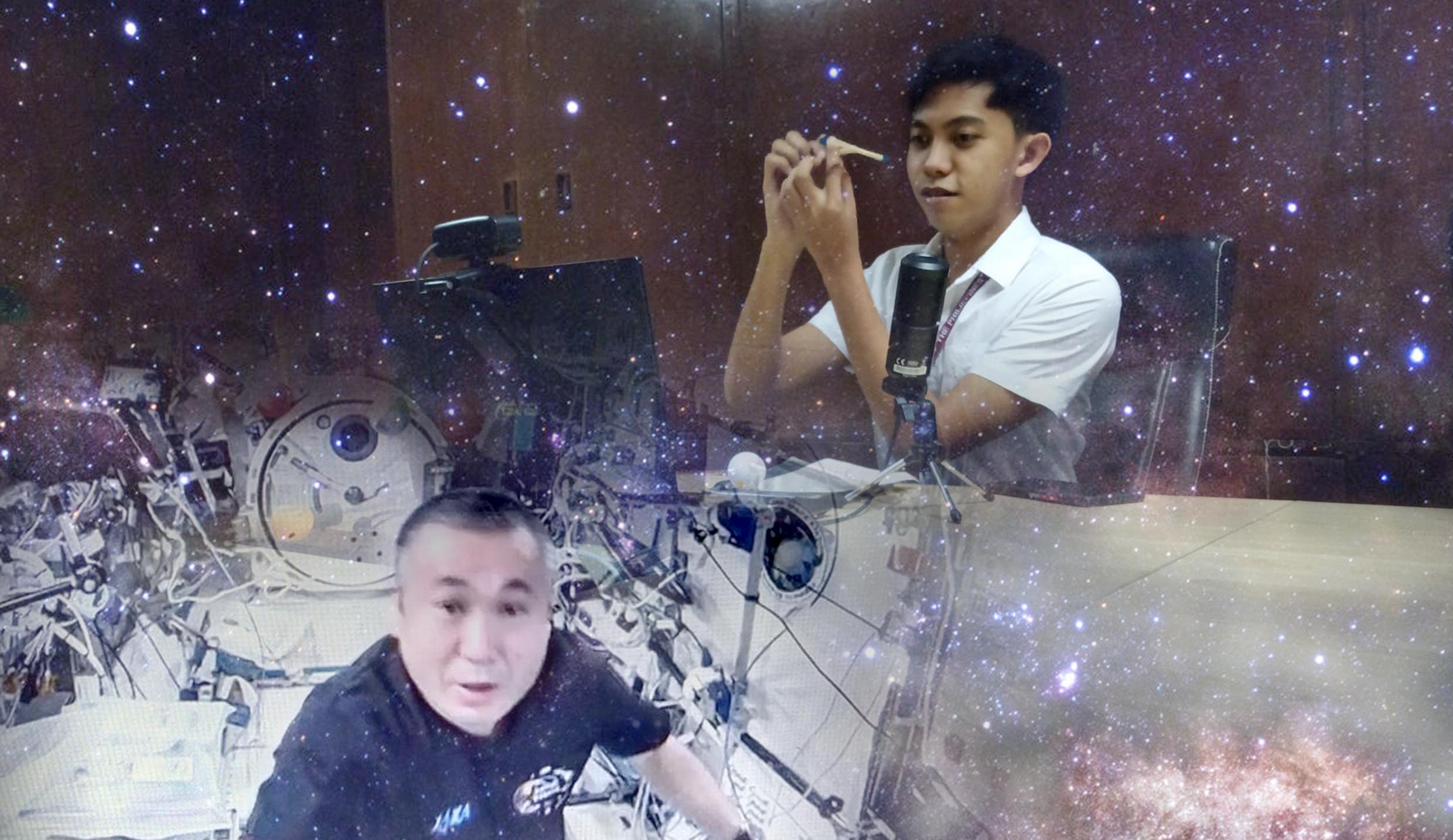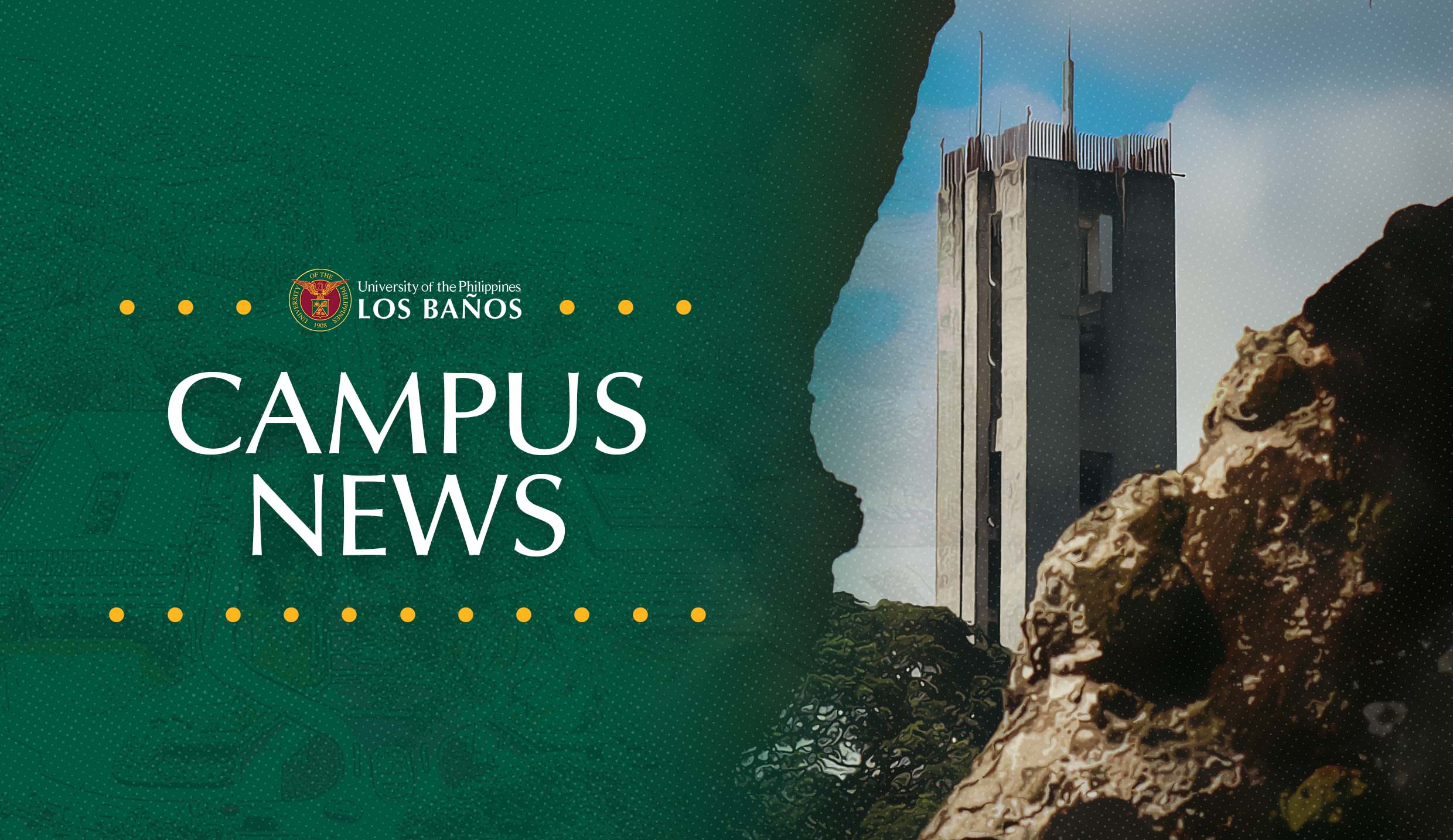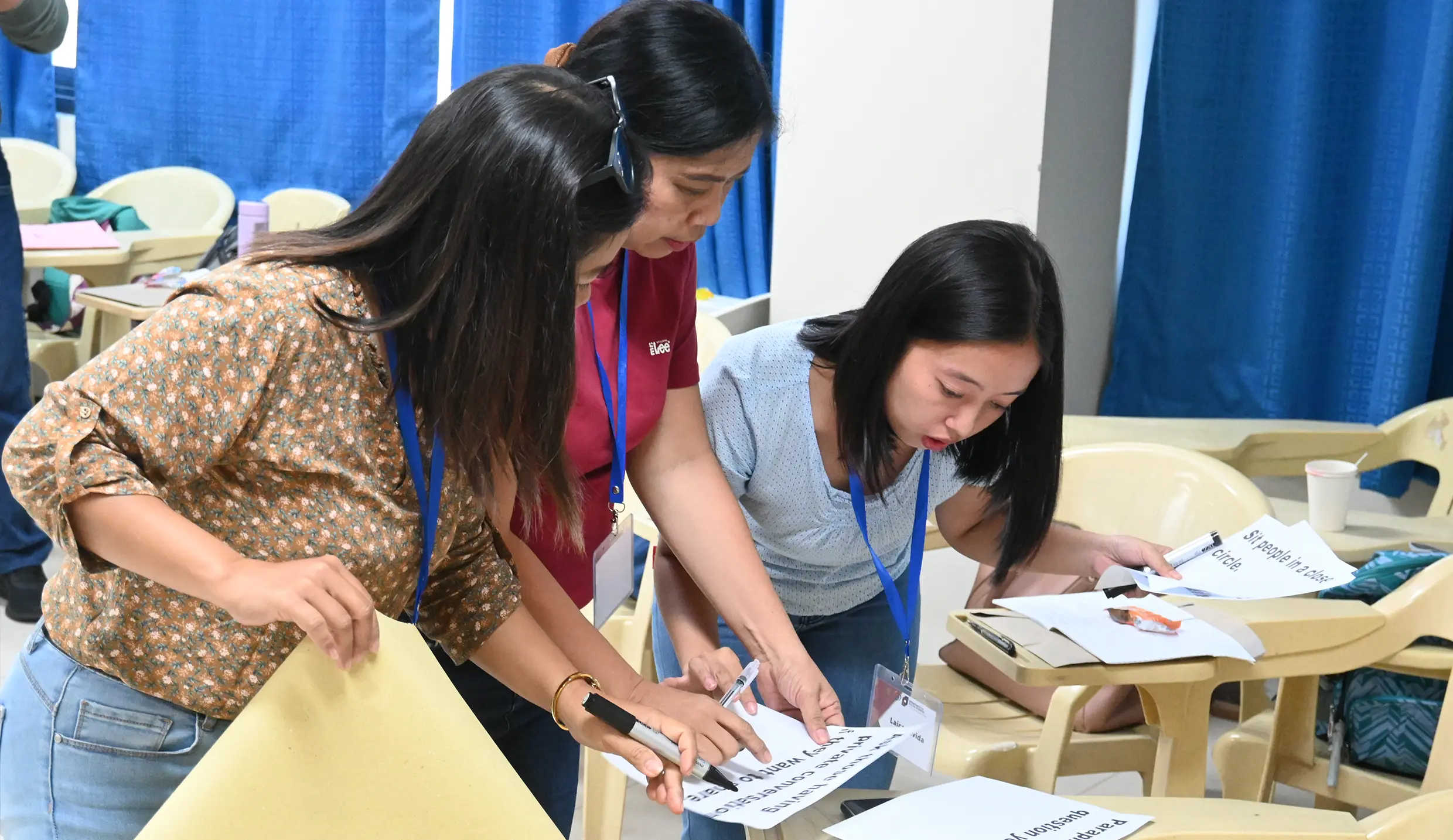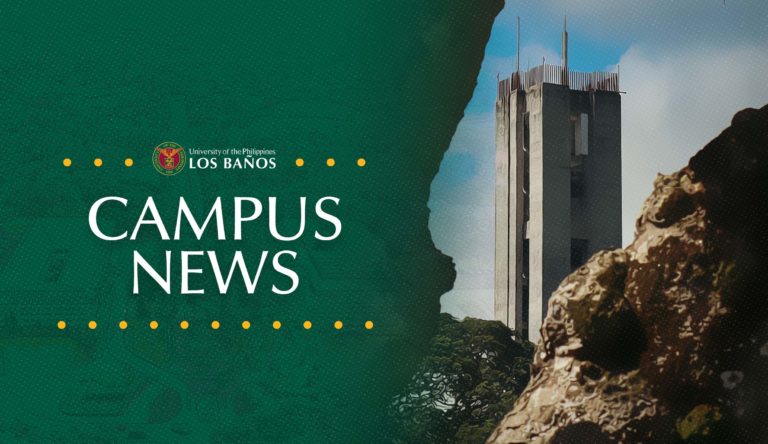
Sometimes, when we want to achieve something we think is impossible, well-meaning friends tell us to “take a leap of faith.”
William Kevin Abran, a BS Applied Physics student at UPLB, did exactly that, and his leap brought him to space.
When the call for proposals for the Asian Try Zero-G 2022 was announced, Abran submitted his experiment proposal entitled “Rotation of ‘Dumbbell-shaped’ Objects in Space.” On Jan. 17, this experiment was performed by Astronaut Koichi Wakata in the Japanese Experimental Module called “Kibo” on the International Space Station (ISS).
Into space
The Philippine Space Agency (PhilSA) posted on their Facebook page the call for experiment proposals for the Asian Try Zero-G (AZTG) 2022, which was organized by the Japan Aerospace Exploration Agency (JAXA).
Abran immediately considered participating in the contest. “It has to be unique, easy to do, can be conducted under 10 minutes, and has to rely on the available materials onboard the space station,” he said. His love for space science motivated him to develop a simple one that can help the future of space exploration.
The Dumbbell experiment, as he calls it, is a microgravity experiment to observe how dumbbell-shaped objects rotate in space. The Dzhanibekov Effect, which describes the movement of a rigid object, causes some shapes to spin or even flip when spun in space unstably. While the effect was not that evident in the experiment, it also proved that “dumbbell-shaped objects have stable rotations in any direction in microgravity,” Abran added.
PhilSA initially conducted a local screening of entries and picked five to be sent to the international competition. Among 201 proposals, 24 finalists were selected. Six of these experiments were performed on ISS, one of which was Abran’s.
There were almost no problems during the conduction of his experiment as all the materials needed were already available in the space station. Abran also said that the PhilSA scientists and engineers helped him greatly with some physics and space concepts.
Unfortunately, Abran could not be at the JAXA headquarters in Japan due to lack of funding and preparation. Because of this, the Philippines was the only country without a representative.
Curiosity of space
It has always been Abran’s dream to be a scientist since elementary school. Whether it be as an astronaut, physicist, or rocket scientist, he said he always had this love for space science and curiosity to explore space.
“I’m very happy that, even though I’m still not one of those, I’m already able to participate in some space projects, including this, sending an experiment to space,” Abran stated.
He also said that UPLB is a great platform and was instrumental in advancing his knowledge and appreciation for science. He added that the people in the University are very supportive of his journey in exploring this field of science.
Space is not the first thing that comes to mind when told about science. This is why Abran had to do his research—reading, watching videos, and meeting people in the field—-to learn more about it.
With this, Abran’s advice for young people who wants to pursue space science is to be resourceful.
“There are many things to explore in our world and even beyond. Keep being curious, and you might also find your own discovery,” he said.
With his curiosity and a huge leap, he was able to take a step forward towards his dream. (Kyle Ramiel Dalangin)








